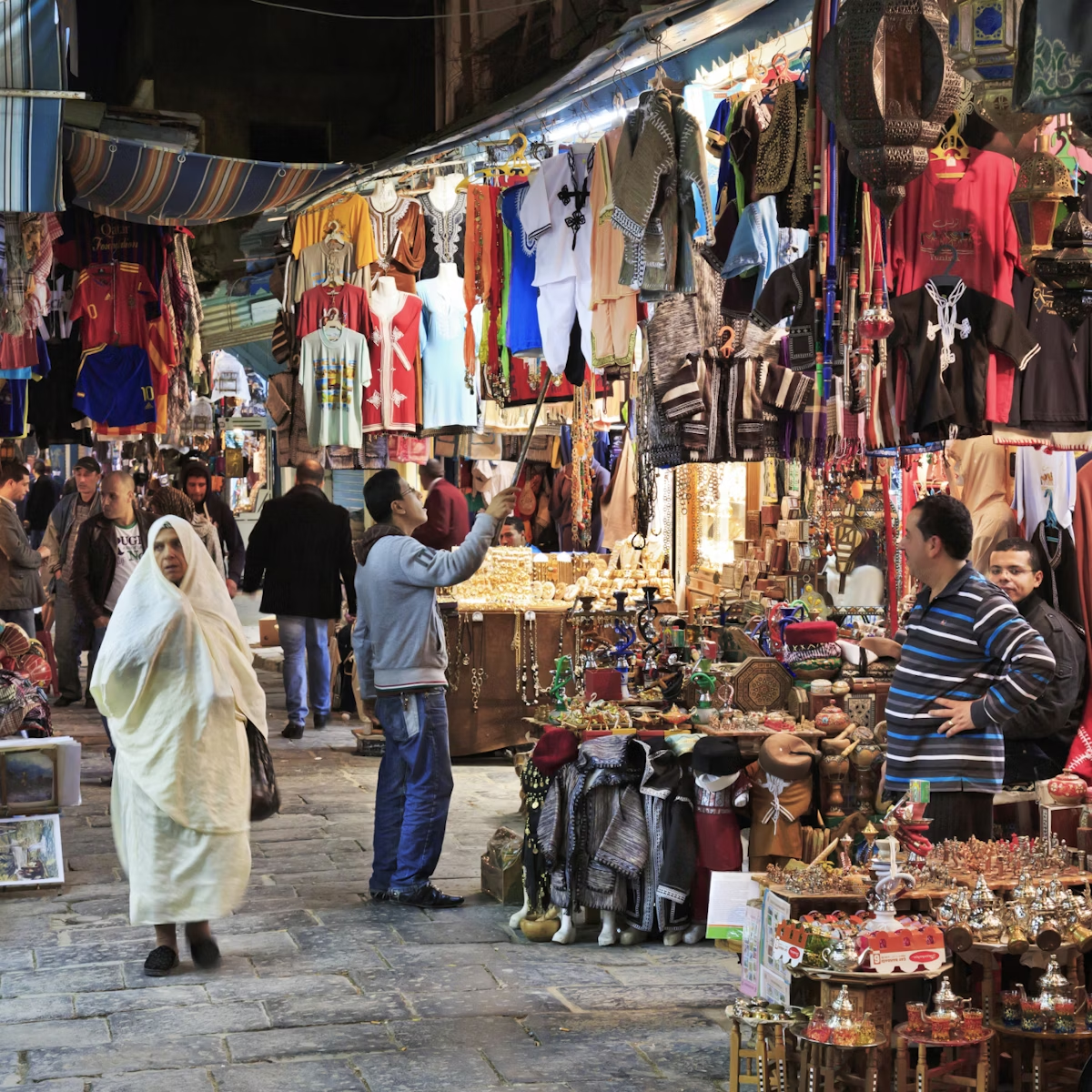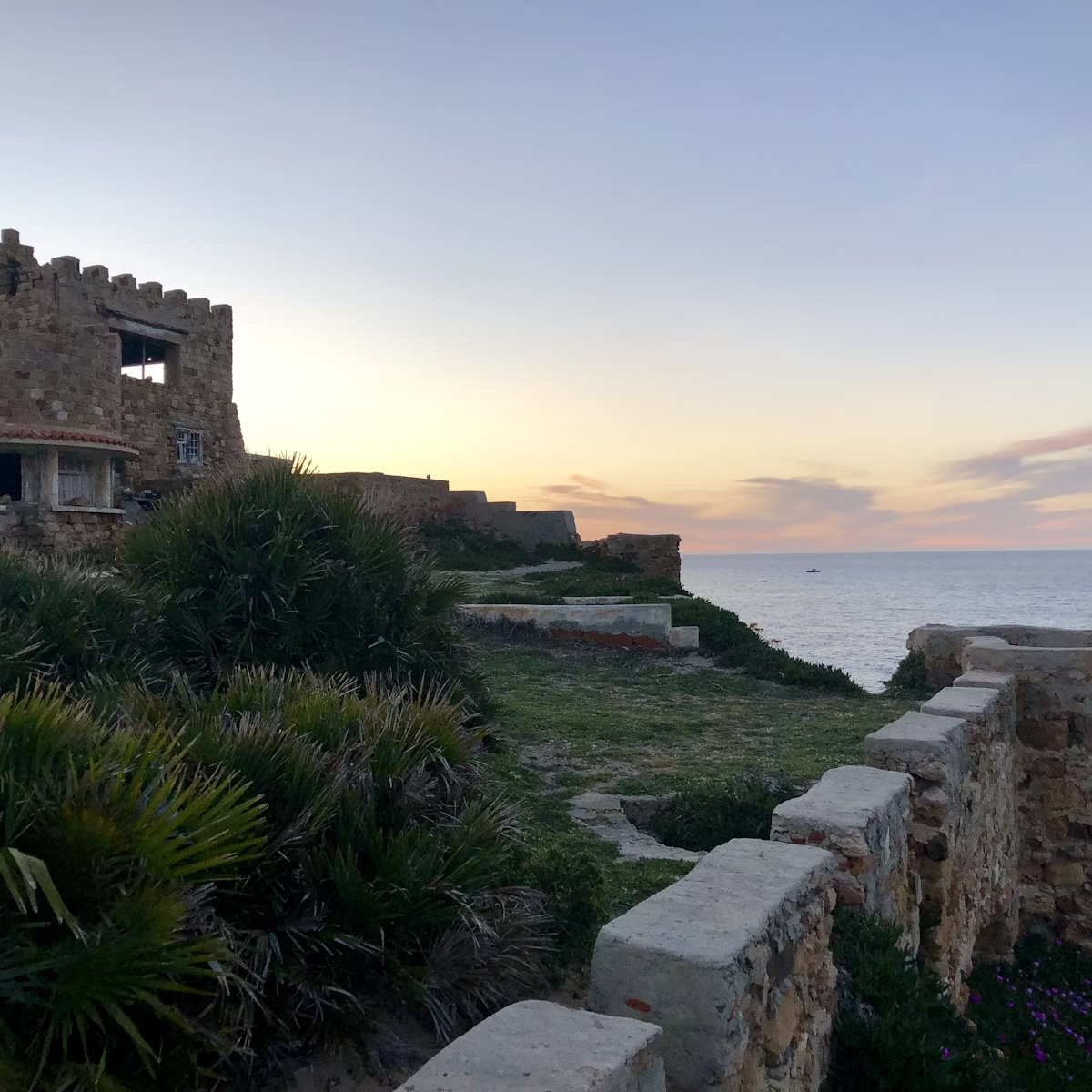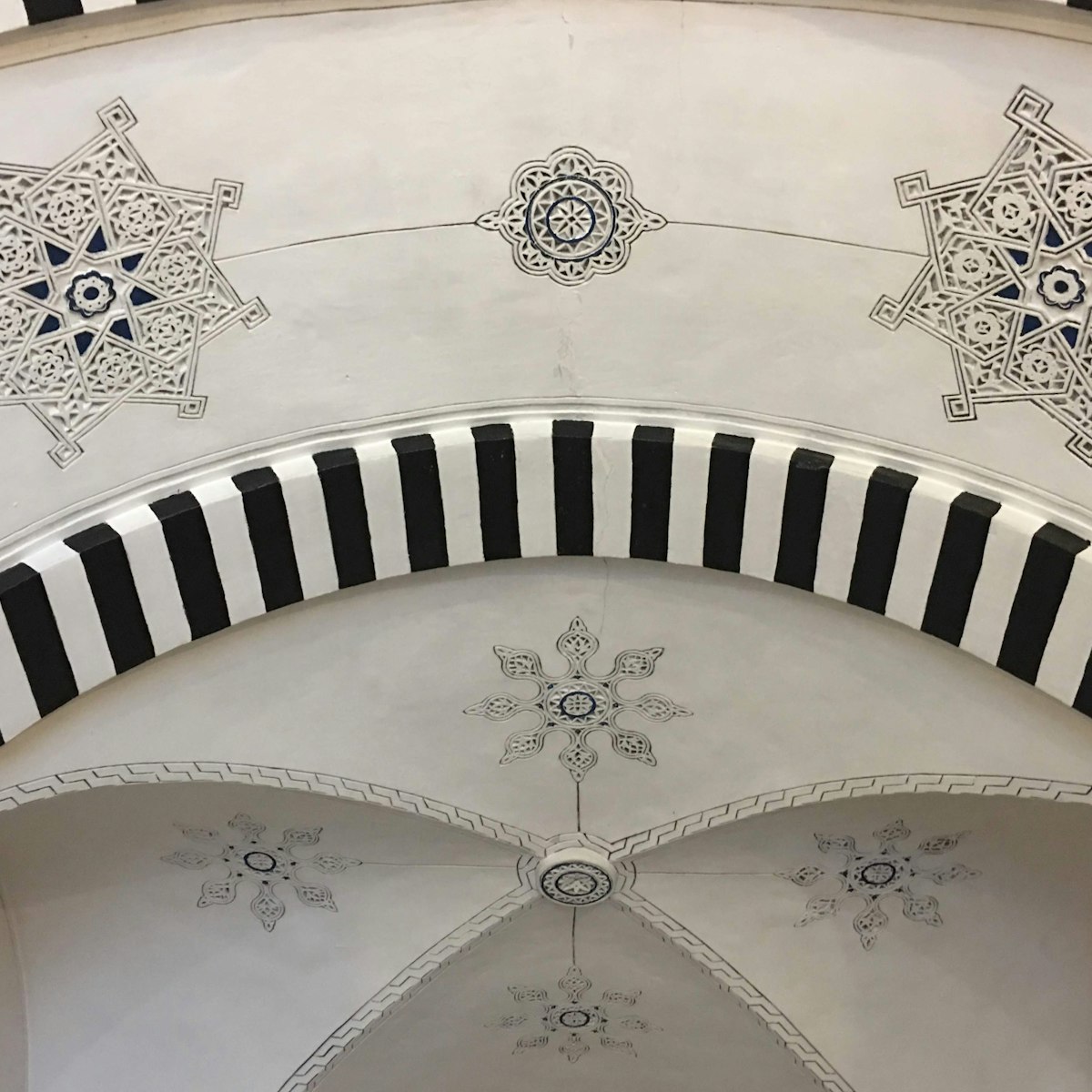The Romans chose a sublime seaside setting for this monumental terme (bath complex), a short walk downhill from the Roman villas. Begun under Hadrian and finished in the 2nd century AD under Antoninus, it was the largest terme outside Rome, supplied with water by the great Zaghouan aqueduct. Just the foundations remain, but they are awesome in scale. A plan of the baths above the main complex will help you imagine how the complex would have functioned in its heyday.
An octagonal caldarium (hot room) was flanked by smaller saunas and led to a small tepidarium (warm room), which allowed access to the huge 22m-by-42m frigidarium (cold room) at the centre with its eight colossal pillars. Beyond this was a wonderful, 17.5m-by-13.5m seaside swimming pool, no trace of which remains. To either side of the frigidarium were palaestras (gymnasiums), where people could indulge in naked wrestling and other frisky sports.
A sole 15m-high frigidarium column gives a sense of its former dimensions – its capital alone weighs 8 tons – and huge fragments of marble inscription supply a taste of the decor. To the southwest a huge semicircular construction was discovered, with around 80 seats, which archaeologists at first thought was a theatre. It turned out to be a large group of communal latrines. Only the shape and traces of the mosaic floor remains.
The baths were destroyed by the Vandals (doing what they did best) in AD 439, and the stone was reused by the Arabs during the construction of Tunis.
The overgrown garden contains other remains, too, including Punic tombs and a tiny early Christian funerary chapel with a mosaic floor that was moved here from northern Carthage and rebuilt.








